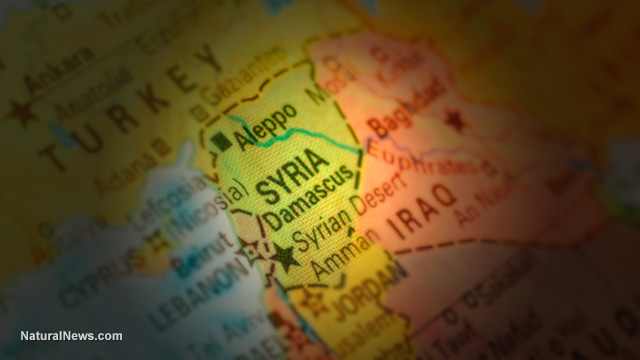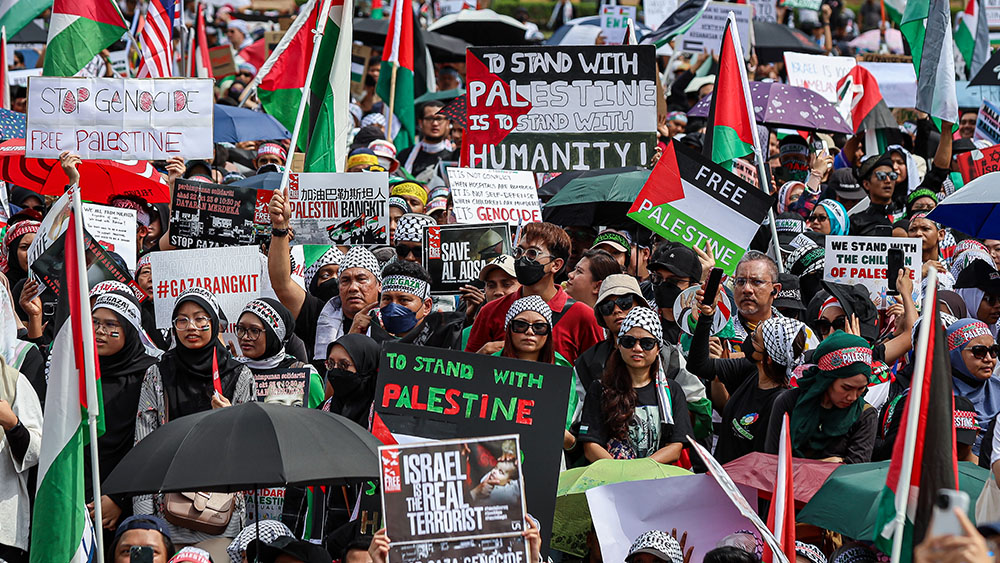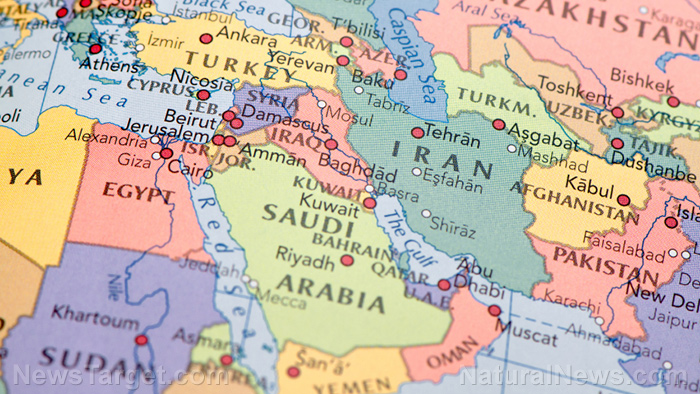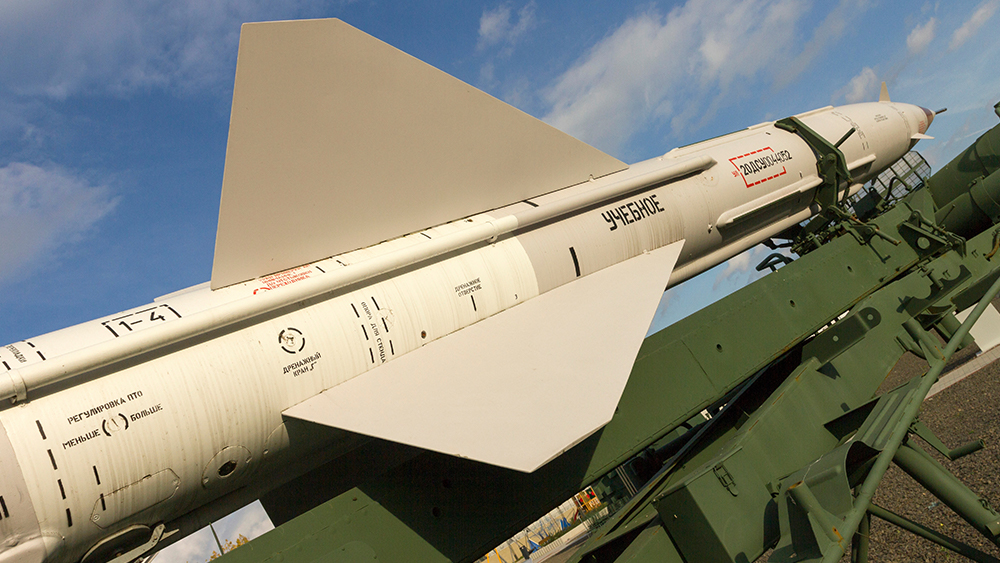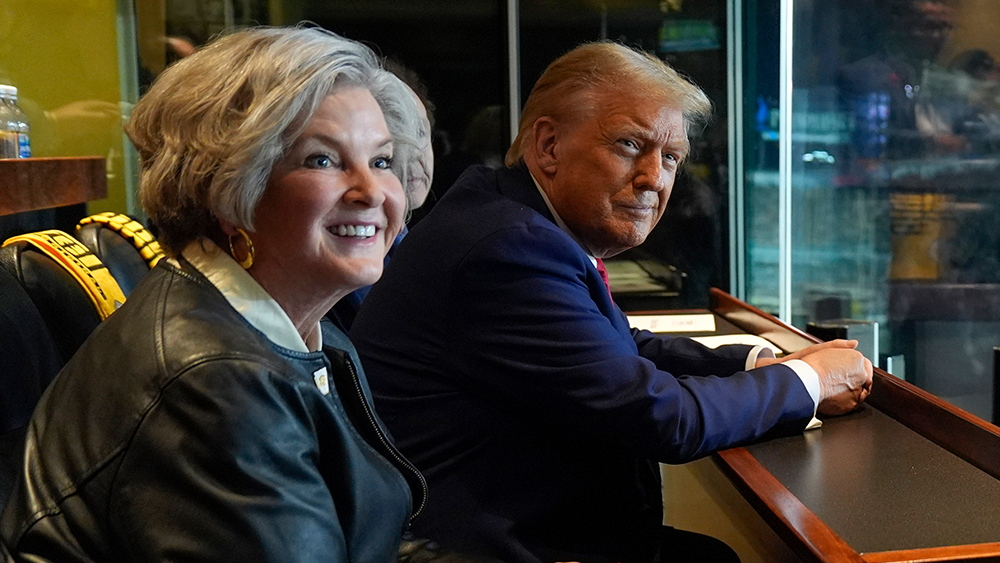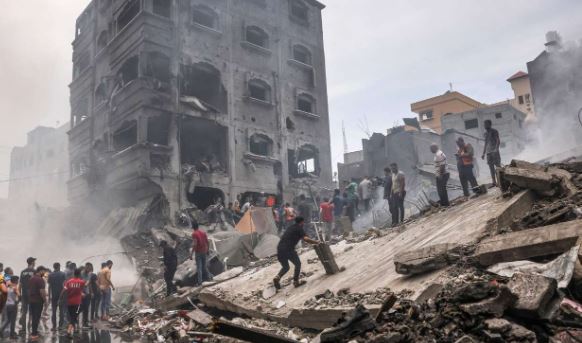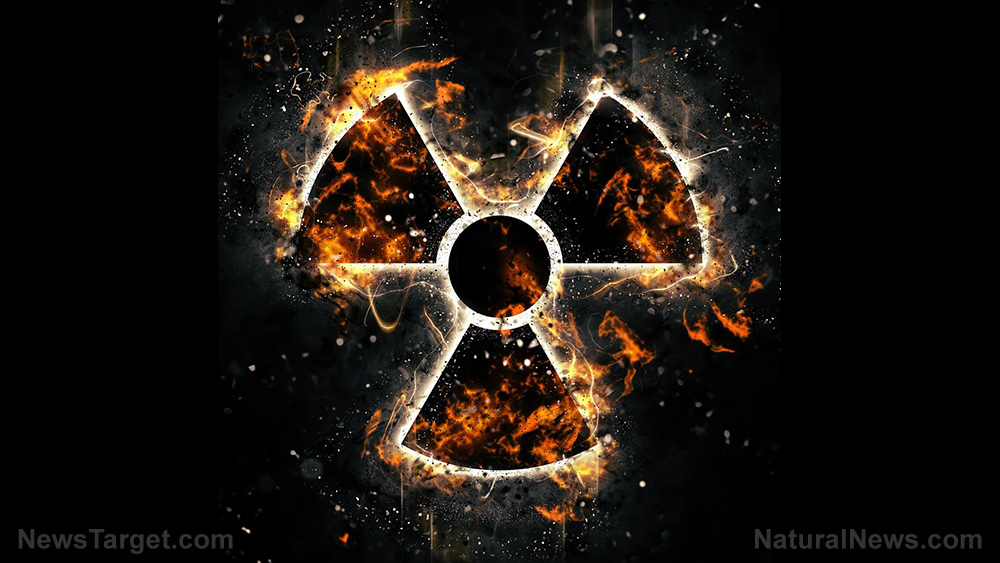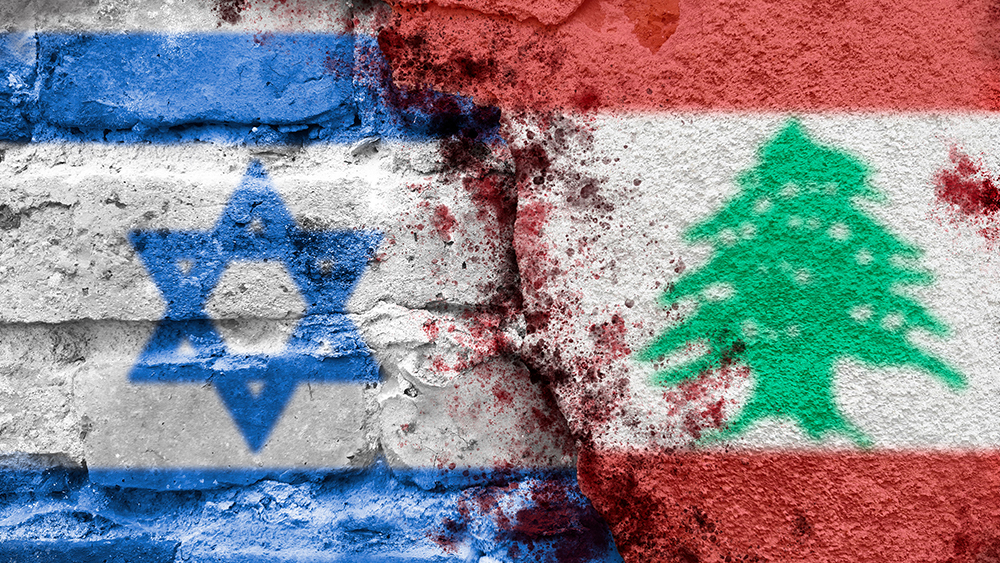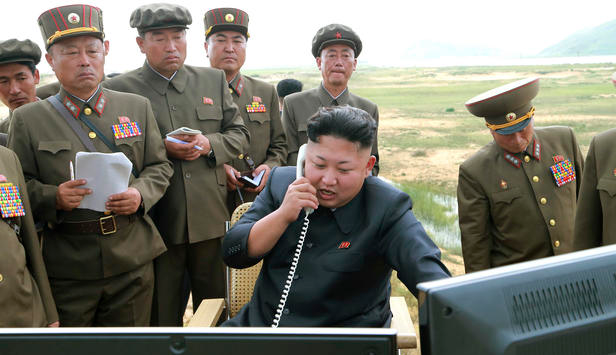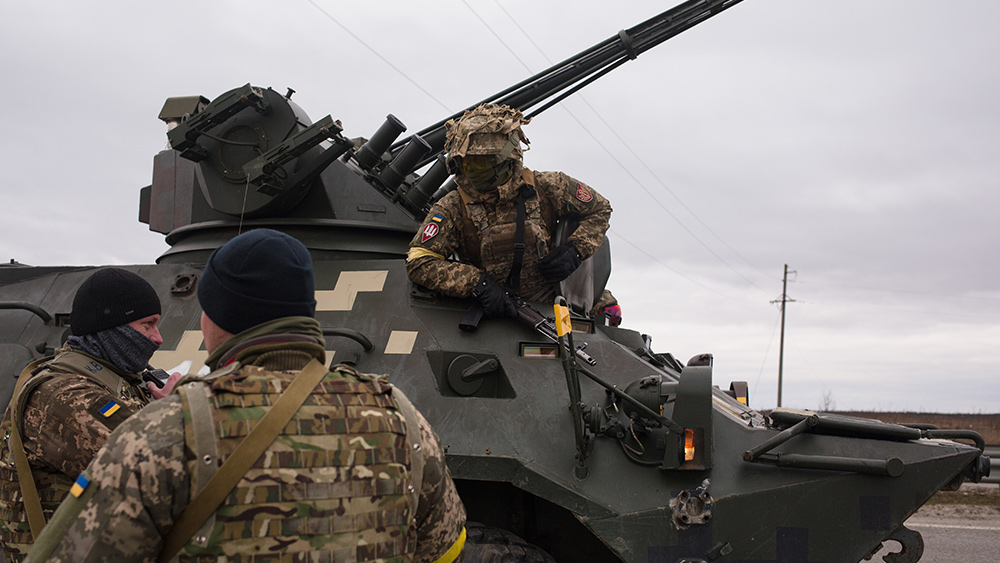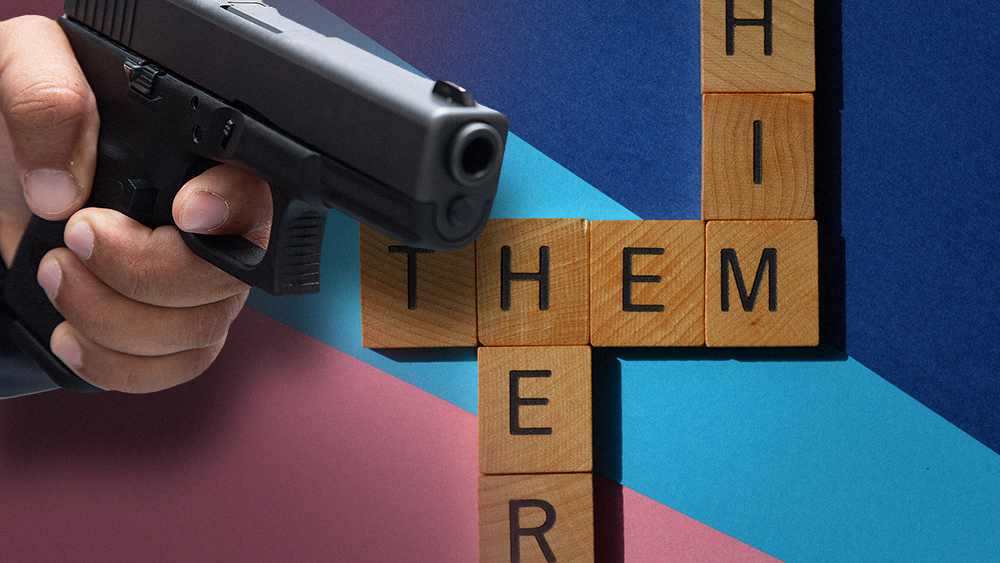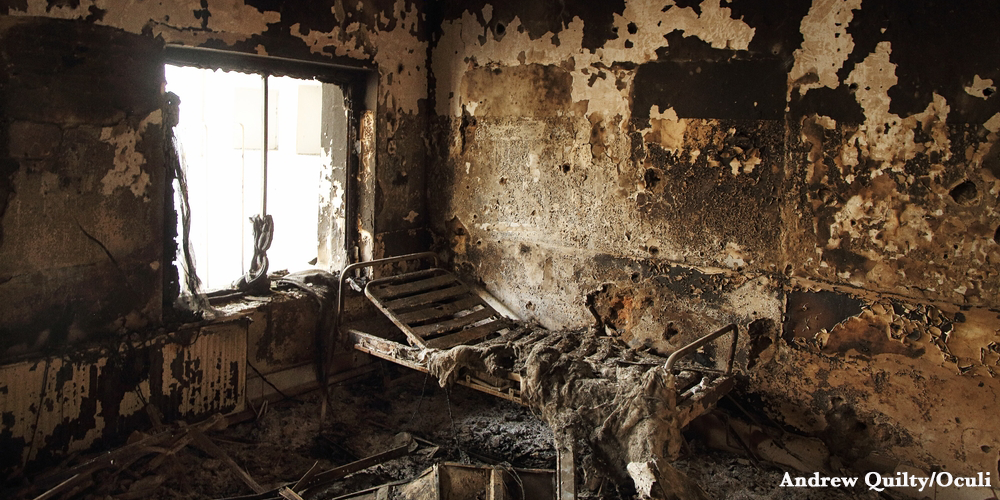ICC arrest warrants show that Israel is swiftly becoming a ‘pariah state’
11/26/2024 / By News Editors
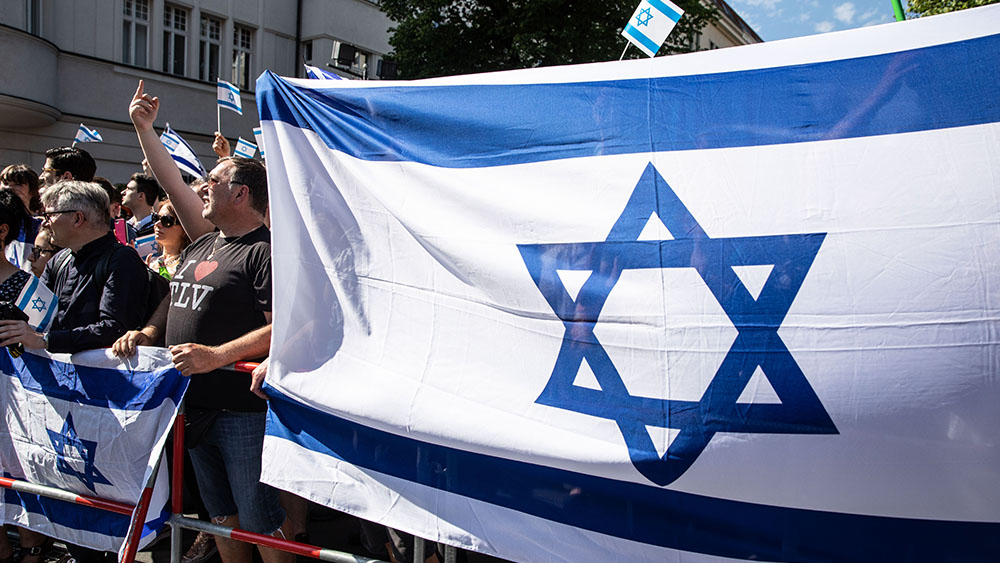
The International Criminal Court’s recent decision to issue arrest warrants against Prime Minister Benjamin Netanyahu and former Defence Minister Yoav Gallant constitutes a watershed moment for Israel‘s image and international legitimacy.
(Article by Meron Rapoport republished from MiddleEastEye.net)
The warrants have sent shockwaves across Israeli society and political establishment.
Politicians reacted defiantly. Netanyahu accused the ICC of antisemitism. The rest of Israel’s right wing followed suit.
The centre-left has not accused the court of antisemitism, but agreed that the decision was unacceptable, unjust, and had no legal basis, because it placed Israel and Hamas as equals in committing crimes during the war.
These reactions are a direct continuation of Israel’s lack of recognition of what it is doing in Gaza.
Even if there is a very small minority in Israel that recognises the crimes committed by its army in Gaza, the general Israeli public is in complete denial. They claim that only Hamas has committed war crimes, not Israel, and that what Israel is doing in Gaza is self-defence.
In the eyes of most Israelis, Israel is not killing innocent Palestinians for no reason, and if there is a famine in Gaza, it is the result of Hamas stealing humanitarian aid – a line repeated again and again by the Israeli army and other official channels.
This reaction was expected, yet the situation in Israel is a little more complicated. The issue of arrest warrants against the prime minister and former defence minister is a significant event and watershed moment in Israel’s relations with the international community and international law.
Israel was established by a UN resolution. Much of the developments in international law after World War II, such as protection for refugees or the criminalisation of genocide, were a response to the Holocaust, and Israel has backed these developments.
But Israel’s assault on the ICC casts the country as an enemy of international law, as a state trying to undermine international law and all its institutions. It’s a dramatic change of attitude.
It doesn’t end with the ICC. The International Court of Justice (ICJ) is now examining the case brought by South Africa, accusing Israel of genocide.
There is no direct connection between the two institutions and the two legal processes, but it is reasonable to think the issuing of arrest warrants by the ICC will affect also the deliberations at the ICJ concerning genocide.
The warrants were issued against Netanyahu and Gallant personally, but to a large extent they indicate that Israel, as a state, is committing war crimes and crimes against humanity.
Netanyahu and Gallant did not commit these alleged crimes by themselves, the entire military and state apparatus was involved.
In the short term, the ICC decision could deter Israeli commanders at the middle or higher ranks, such as division commanders and brigade commanders.
For example, senior Israeli military officers have said openly that they prevented humanitarian aid getting into northern Gaza after the army’s military operation there began in early October. They have said too that the purpose of this operation is to drive the remaining population south across the Netzarim corridor.
Now that the orders have been issued, an Israeli army officer will think twice before making such statements, because they may be afraid that they will be arrested on their next trip to Europe. A soldier may also refrain from executing orders that could lead to starvation, as this was clearly mentioned in the ICC’s warrants as a possible crime against humanity.
‘Gray refusal’
In the short or medium term, the ICC’s decision could provide an answer for those Israelis who are wondering whether Israel is committing crimes in Gaza.
Aside from a small left-wing minority that is convinced Israel is committing crimes, there is a broader group of Jews in the centre-left who are beginning to have doubts about Israel’s actions in Gaza, despite being supportive of the war up until now.
Recently, Tomer Persico, a liberal centre-left scholar, and Eran Etzion, former deputy head of the National Security Council, called on reservists to refuse serving in the ethnic cleansing of northern Gaza.
We don’t know how many Jews think this way, as the mainstream media doesn’t give space to these voices, but they could amount to 10 or 15 percent of the Jewish population.
The ICC’s decision will give legitimacy to these views in Israel. Those holding them will be able to say: “This is what the world thinks of us.”
A change of opinion in the Zionist left could lead to an increase in refusal to serve in the war. Since its beginning in October 2023, there have been very few cases of refusal to serve, while in the First Lebanon War and the Second Intifada there were hundreds of cases.
We are now seeing in Israel a phenomenon of “gray refusal” – Israelis who do not show up when called to the reserves.
While at the beginning of the war, all those called showed up, today the rate has dropped to 65 percent. This “gray refusal” is not usually for moral reasons. It is mainly to do with economic or family problems. Yet this type of refusal could increase following the ICC decision.
It is also possible that some of the reservists will make a distinction between Gaza and Lebanon.
The war in Gaza is no longer popular with the Israeli public, in contrast to the war in Lebanon, which still enjoys a broad consensus. The fact that Netanyahu’s government seems to have given up on the 101 hostages in Gaza may only add fuel to the opposition.
Pariah state
In the long run, and in a more meaningful way, the ICC warrants cut Israel off from the international community in a very sharp way.
These are no longer just mass demonstrations against the war in London or on campuses across the United States. This is a decision by a court that is accepted by most of the western world. With these warrants Israel moves more and more to the margins of the international community.
It is likely that the new Trump administration in the US will be very aggressive toward the ICC and will try to extract Israel from this isolation, along with countries such as Hungary, the Czech Republic, Argentina and other members of the global radical right-wing coalition.
However, this American reaction, whose impact is not guaranteed (Trump already sanctioned the ICC in his previous term and had little effect on the court) cannot change the basic reality: Israel is swiftly becoming a pariah state.
This isolation and delegitimisation of Israel can have practical and immediate effects such as encouraging military and other sanctions on Israel.
It’s not only that Netanyahu will find it difficult to travel abroad, foreign leaders will also find it difficult to travel to Israel and meet a “wanted” man. The whole of Israel’s diplomatic relations may suffer a significant blow.
It can be said that Israel is undergoing a slow process of South Africanisation before the abolition of the apartheid regime.
Supporters of Palestinian rights around the world can say that Israel has committed far more serious crimes in Gaza than it is accused of, and it has not yet been subjected to the same severe sanctions as Russia and Iran. There is justice in this claim.
But it must be taken into account that Israel is an integral part of the West and the closest ally of the United States. For many in Europe, supporting Israel is a kind of compensation for the Holocaust. In western eyes, Israel never stood where countries like Iran, Syria or Russia stand.
Therefore, the marginalisation of Israel is a significant event relative to where it stood on 6 October 2023.
It is too early to say whether the issuance of arrest warrants against Netanyahu and Gallant will lead to the weakening of Israel’s far-right government. It could be that they boost its support, as Netanyahu and co claim “the whole world is against us”.
But it can already be said that something deep has cracked in Israel’s legitimacy as a state within the international community, and that Israel will find it difficult to fix this without a complete change in the way it treats the Palestinians. This marks the ICC decision as an event of enormous significance.
Read more at: MiddleEastEye.net
Submit a correction >>
Tagged Under:
awakening, big government, chaos, Collapse, current events, democide, ethnic cleansing, Gaza, genocide, Holy War, humanitarian, ICC, Israel, Israel-Hamas war, Palestine, politics, progress, terrorism, violence, War crimes, World War III, Xpost
This article may contain statements that reflect the opinion of the author
RECENT NEWS & ARTICLES
COPYRIGHT © 2017 VIOLENCE NEWS

